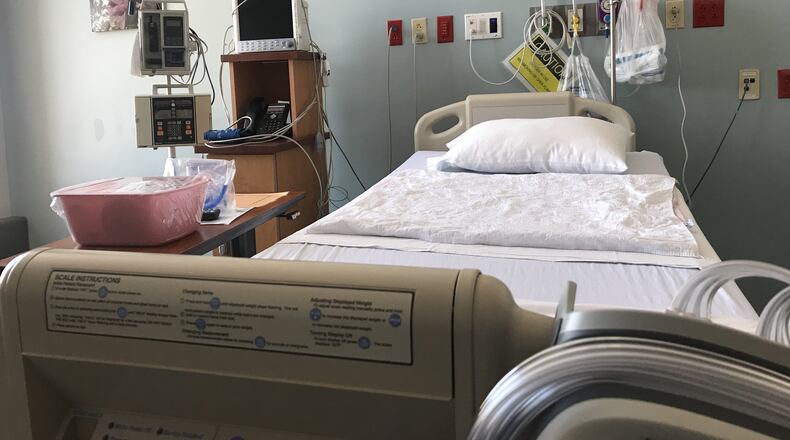Some metro Atlanta hospital prices are higher than those paid in many other states, according to a report by the Rand Corp.
Health care prices are notoriously difficult for the public to figure out. Both insurance companies and health care providers are reluctant to give out the actual price they were willing to settle on in negotiations. So as they prepare for their next rounds of negotiations, self-insured companies and other health plans paid Rand to determine what they were paying compared with the rest of the market.
The health plans gave Rand the prices they paid to hospitals. Looking just at those prices — $15 billion worth of services, a very small slice of the U.S. market over the three years studied — the hospitals in metro Atlanta ranked 8th out of the 25 states Rand ranked. All the Georgia prices came out of metro Atlanta.
Michigan ranked lowest, with private payers paying hospitals about 150% of what Medicare pays. That’s far less than the highest-price state in the report, Indiana, where hospitals charged private payers more than 300% of the Indiana Medicare price.
Georgia’s prices in the report were about 240% of Medicare prices.
Michigan expanded Medicaid to cover all its poor. That means that its hospitals don’t have to work as much to negotiate higher prices with private insurance companies in order to subsidize their work on the uninsured patients who pay nothing.
Indiana also expanded Medicaid. But Indiana’s expansion imposed a requirement on enrollees to pay into health savings accounts. A Kaiser Family Foundation report found that that might make Indiana’s expansion less accessible.
One of the most striking things in the Rand report was how the prices varied. It wasn’t just a matter of geography; the numbers Rand used weren’t dollar figures but how much higher the private payments were than Medicare prices.
A spokesman for the Georgia Hospital Association, Ethan James, emphasized the gaps in the report. He called the data “cherry-picked” and the report a vehicle for insurers to press hospitals for even lower prices, which could bankrupt smaller hospitals. He noted none of the prices included rural Georgia hospitals, which would likely be lower than in metro Atlanta.
The report, released this weekend, was first reported by Georgia Health News.
About the Author
Keep Reading
The Latest
Featured



